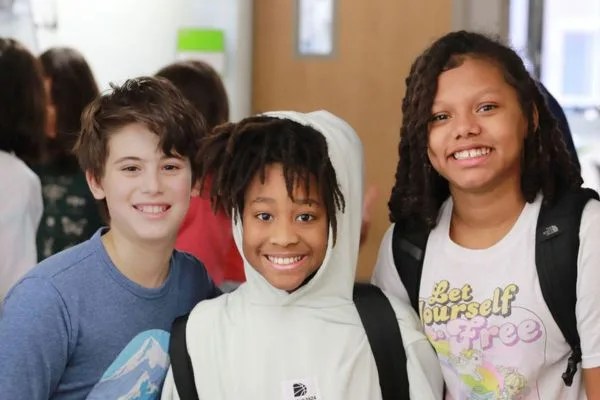Today, more children (and adults) in the U.S. are being diagnosed with Attention Deficit Hyperactivity Disorder than ever before — and more prescription drugs are being issued all the time as well. Currently, millions of North American school children take medications for the disorder.
Attention Deficit Hyperactivity Disorder (ADHD) is the term used by the American Psychiatric Association for a group of symptoms characterized by getting easily distracted, being hyperactive or restless, and acting on impulse. There are many other traits that fall under these general categories. Although all children have these traits to some degree, they are more intense in those diagnosed with ADHD.
It is one of the most commonly diagnosed cognitive disorders. But this diagnosis is based on subjective assessments of perceived behavior. That is, the diagnosis depends on the person making it. And when it comes to diagnosing children, where do we draw the line between normal behavior and a disorder? It’s natural for children to be boisterous, have a lot of energy, and have difficulty sitting still for long periods. Diagnosing a child is also problematic because children develop at different rates. In addition, other disorders may have similar symptoms to ADHD.
This is not to say that some children and adults do not have problems with attention and hyperactivity that exceed the norm. Some researchers say the increase in Attention Deficit Hyperactivity Disorder diagnoses has been heavily influenced by our modern way of life, in which we are surrounded by so much stimulus and technology and which encourages distraction.
In addition, the condition has been exacerbated by the increased pressure to perform academically and professionally, which is higher than it’s ever been before. Family background, diet, sleep habits, and many other factors also come into play.
Whatever the cause, parents and teachers face the challenge of finding ways to help children channel their energy in useful, healthy ways, and this takes time and patience. There are many creative, intelligent children and adults who do not do well in traditional school and work settings, but who thrive when they are given one-to-one attention and are able to do the things they love.
ADHD children are often gifted. Although they can be easily distracted, forgetful, not able to follow instructions well — and jump from activity to activity without finishing any one thing — when they do find something that really interests them, they can stay focused for long periods of time.
Taking medication is an individual decision. But medication is not an effective long-term solution, and it does not address the deeper issues of the disorder. Also, the long-term effects of these drugs on developing minds and bodies is still not clearly understood.
A holistic approach means thinking of the mind, body, and life situation as one system. In this approach, all aspects of a child’s life are taken into consideration. Treatment methods might include making changes to dietary and sleep patterns; getting fresh air and exercise; taking certain supplements; practicing mind-body skills such as mindfulness, yoga, and breath work; limiting technology; and working with strengths and talents. While there is no one magic bullet, using a combination of therapies can be extremely effective.
Here are some natural options for an integrative treatment plan:
Healthy body, healthy brain
The more healthful and balanced our diets, the better our brains will function. Sufficient protein is particularly important because it prevents surges in blood sugar that may increase hyperactivity or restlessness. It also triggers neurotransmitters, the chemical messengers in our brain that help us to stay alert in a calm, focused way. Add protein foods in the morning and for snacks to improve concentration.
Be sure to include complex carbohydrates such as fruits, vegetables, beans, lentils, and whole grains.
Also important are omega-3 fatty acids, such as those found in tuna, salmon, and other cold-water white fish, walnuts, and olive and canola oils.
Artificial ingredients and allergies
Many children are affected by the artificial colors and flavors found in foods today. In fact, most children will benefit from eliminating — as much as possible — foods with artificial colors and flavors.
In addition, your child may have allergies to certain foods. You can test this by trying an elimination diet. Avoid the food for two weeks and see if it makes a difference. Then, try adding it back again and see what happens. You may also choose to visit a nutritionist and allergist for guidance.
Sugar
There is no hard and fast evidence that sugar worsens behavior in children, but there is certainly a lot of anecdotal evidence! In addition, a growing body of scientific research shows that the overconsumption of sugar can lead to such conditions as obesity, heart disease, and diabetes. Sugar is a hidden ingredient in many foods, and is highly addictive.
Pesticides
Pesticides can be found in high concentrations in fish, meat, and dairy products. Certain kinds of commercial fish, including Atlantic or farmed salmon, bluefish, wild striped bass, flounder, and blue crab, may contain particularly high amounts. Wild fish is a better choice, as is organic meat and poultry. Organic meat packages should state that animals have not been given antibiotics, have outdoor access, are raised on organic land, and have been organically fed.
Produce that contain the highest amount of pesticides include: apples, grapes, nectarines, peaches, pears, red raspberries, strawberries, bell peppers, carrots, celery, green beans, hot peppers, potatoes, and spinach. If you cannot buy all organic produce, at least choose organic from the items in this group. A helpful website is the Institute for Agriculture and Trade Policy Food and Health: www.iatp.org/about/programs/food-and-health.
Supplements
A good diet, eliminating harmful additives, and eating organic as much as possible will definitely improve body and brain function; but adding supplements can be beneficial as well. Some studies have found that levels of zinc may be lower in children with the disorder. Another helpful supplement is fish oil, which contains omega-3 fatty acids.
There are many other natural supplements that can help with focus, attention, and hyperactivity. The book “Non-Drug Treatment for ADHD” by Dr. Richard P. Brown and Dr. Patricia Gerbarg, is an excellent resource for information on supplements, and on all aspects of Complementary and Alternative Medicine, known as CAM. For more visit www.breath-body-mind.com/
Mind-body practices
Mind-body practices such as meditation, yoga, and breath work can be particularly helpful for all the symptoms of Attention Deficit Hyperactivity Disorder and other co-existing conditions such as anxiety and depression.
The slow, gentle movements of yoga can help to calm and focus the mind. Yoga also improves attention and self-awareness. Breathing practices can calm the mind, increase alertness, and improve attention and memory. Relaxation and meditation help to calm and strengthen the nervous system, and have many other benefits as well.
Mindfulness is one kind of mind-body practice that is effective in treating ADHD symptoms and is the subject of ongoing scientific research at major universities. Mindfulness means learning to pay attention to present moment experience, in an accepting and non-judgmental way. Like a muscle, mindfulness is supported through repeated practice. Even small children can learn mindfulness and meditation, and some schools have begun implementing mindfulness as part of their education program.
Scientists now know that the brain has “neuroplasticity.” This means that it is capable of changing and healing itself. Our brains will develop new neural connections based on learning. Although this ability is strongest during the developmental stages of childhood and young adulthood, it continues throughout life. Practicing mindfulness and other mind-body skills can actually change the structure of our brains for the better.
A certified coach specializing in Attention Deficit Hyperactivity Disorder, writing, and creative pursuits, Julianne Davidow uses a holistic approach, incorporating mindfulness skills and positive psychology strategies in her work and daily life. She lives in the greater New York City area. Contact her at info@




















